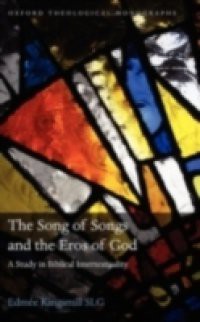Modern biblical scholarship interprets the Song as a collection of love lyrics. For Edmée Kingsmill, on the contrary, the essence of the Song is mystical. A principal concern of this study, however, is to uncover the relationship between the 117 verses of the Song and those biblical books to which they point. Beneath the metaphors a network of allusions is being woven, conveying a picture opposite to that we find in the prophets who, confronted with thecontinual 'adultery' of Israel, poured forth their condemnations with unwearying passion. In dramatic contrast, the Song presents a paradisal picture: 'For, lo, the winter is past, the rain is over and gone. The flowers appear in the land, and the time of singing is come' (Song 2: 11-12). Thus, in presenting the ideal, the intention of the Song's author is shown to be encouragement. The inclusion of this poem in the biblical canon is understood, therefore, to be central to the purpose of the biblical literature: to bring all people to love the God of love. The book is in two parts. The first and longer part is concerned with themes, including the relationship of the Song to the early Jewish mystical literature. The second part is a short commentary intended for the reader interested in the text as much as in the related questions to which the text gives rise.

